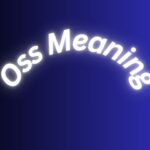The phrase “divine intervention meaning” refers to the belief that a higher power influences or alters the natural course of human events. It carries strong spiritual, religious, and cultural implications that differ based on traditions and individual perspectives.
Throughout history, divine intervention has been invoked to explain miracles, sudden changes of fortune, or events beyond ordinary human control. From ancient scriptures to modern storytelling, this concept often represents hope, faith, or guidance in moments of difficulty.
Understanding the meaning of divine intervention also requires exploring how language frames it. By examining its use in texts, conversations, and idiomatic expressions, we gain insights into how people use the phrase to express belief, wonder, or relief.
Divine Intervention Meaning in Text
When people mention “divine intervention” in text or conversation, they usually imply that a supernatural force has altered a situation for the better. It may appear in religious discussions, literature, or even casual remarks when something unusually favorable happens.
For example, a person might say, “It was only divine intervention that saved us from that accident.” Here, the phrase suggests that luck or fate alone could not explain the outcome—it was something greater at work.
Writers and speakers often use it metaphorically. Someone passing an exam they barely prepared for might jokingly call it “divine intervention,” blending humor with the suggestion of unexpected help. This flexibility makes the phrase both powerful and versatile.
Hiatus Meaning and Its Connection
Alongside “divine intervention meaning,” another term worth examining is “hiatus meaning.” Hiatus refers to a pause, gap, or interruption in a sequence, whether in conversation, publishing, or daily life.
In language, hiatus can also mean a break between two vowels, but in everyday usage, it describes temporary pauses in work, speech, or activity. For example: “The series is on hiatus until next year.”
Exploring this alongside divine intervention helps highlight how language can express both interruptions (hiatus) and unplanned interventions (divine). Both words reveal how English captures nuances of control, pause, and change in life’s flow.
Exploring Alternatives to “Divine Intervention Meaning”
While “divine intervention” is widely used, speakers and writers may prefer alternatives depending on the formality of the situation, personal beliefs, or conversational tone. Below are polished alternatives in polite, professional, and casual contexts.
Polite Alternatives
- Blessing in disguise – Suggests that something initially unfavorable led to a positive outcome.
- Turn of good fortune – A respectful phrase highlighting unexpected luck.
- Guiding hand – A soft and uplifting way to imply unseen guidance.
- Stroke of luck – Neutral, polite, and common in everyday speech.
- Fortuitous event – A more refined way to emphasize a chance but favorable occurrence.
Professional Alternatives
- Providential occurrence – Formal, emphasizing destiny or divine planning.
- Unforeseen assistance – Professional tone for describing unexpected help.
- Remarkable coincidence – Neutral, suitable for workplace or academic contexts.
- Timely intervention – Highlights the timing without overt spiritual reference.
- Extraordinary circumstance – Suitable for reports, discussions, or formal writing.
Casual Alternatives
- Pure luck – Simple and direct, often used in casual conversation.
- Happy accident – Light-hearted, humorous way to explain a lucky outcome.
- Right place, right time – Suggests chance alignment of circumstances.
- Sheer chance – Casual and straightforward phrasing for unexpected results.
- Out of the blue – Commonly used to describe surprising and sudden changes.
Nuances of Tone
The choice between “divine intervention meaning” and its alternatives depends largely on the tone and context.
- Polite settings often call for expressions like “blessing in disguise” or “guiding hand,” which sound thoughtful and warm without being overly casual.
- Professional communication may avoid overtly religious wording, instead opting for “timely intervention” or “remarkable coincidence.” These keep discussions neutral while still acknowledging unexpected outcomes.
- Casual conversations can comfortably use phrases like “pure luck” or “out of the blue,” which carry a friendly, informal feel without heavy spiritual undertones.
By recognizing these nuances, speakers can select the most fitting expression, ensuring clarity and appropriateness in different interactions.
Choosing the Best Expression
Selecting the right phrase involves three considerations: audience, purpose, and belief system.
- When addressing religious or spiritual audiences, “divine intervention” or “providential occurrence” resonates strongly.
- For workplace or academic settings, neutral options like “timely intervention” are more suitable.
- In personal, casual talk, light alternatives such as “happy accident” or “right place, right time” add charm and relatability.
This adaptability ensures the phrase—or its alternatives—remains powerful and contextually appropriate.
Broader Cultural Context
The concept of divine intervention meaning is not confined to English alone. Across cultures, languages have developed expressions to explain extraordinary events as influenced by fate, gods, or unseen forces.
In literature, divine intervention often drives stories, especially in ancient epics where deities guided or disrupted human actions. In modern usage, however, it frequently appears metaphorically to describe fortune, chance, or surprising results.
Understanding this broader context enriches how we interpret both serious and light uses of the phrase, allowing us to appreciate its cultural and linguistic depth.
Conclusion
The phrase “divine intervention meaning” captures humanity’s age-old fascination with forces beyond our control. Whether taken literally, metaphorically, or casually, it serves as a versatile expression of hope, surprise, or fortune.
By exploring its nuances alongside “hiatus meaning” and offering thoughtful alternatives, we see how English provides both spiritual and secular ways to describe life’s unexpected turns. This adaptability ensures that the phrase continues to hold relevance across diverse contexts.
Ultimately, choosing between “divine intervention” and its alternatives depends on tone, audience, and intention—making it a valuable addition to any speaker’s or writer’s vocabulary.

Elizabeth crafts heartfelt messages for every occasion—anniversary wishes, love notes, prayers, thank-yous, and inspirational greetings—bringing warmth, joy, and connection to your special moments.










